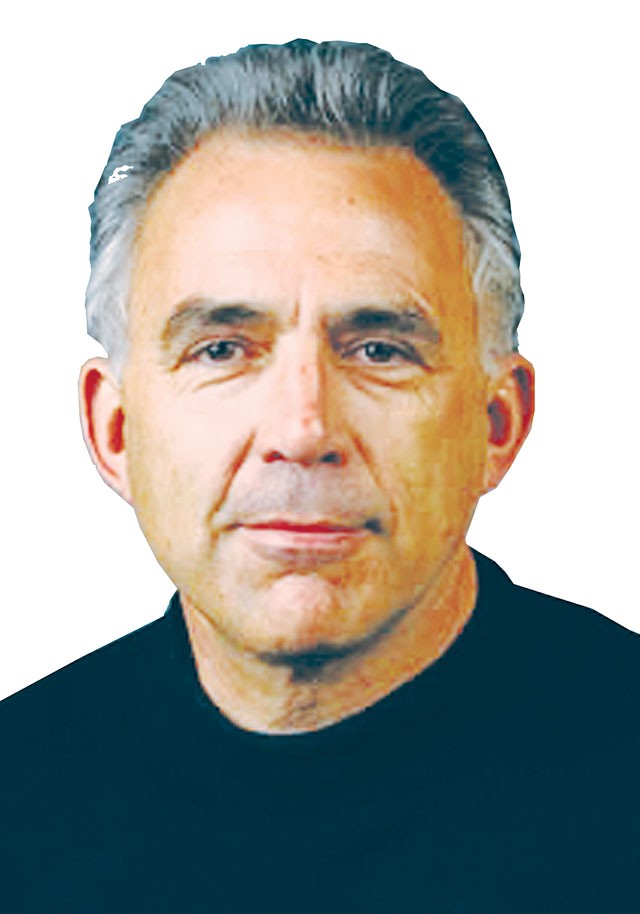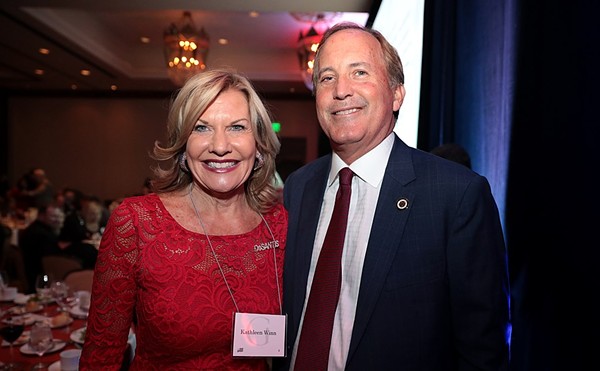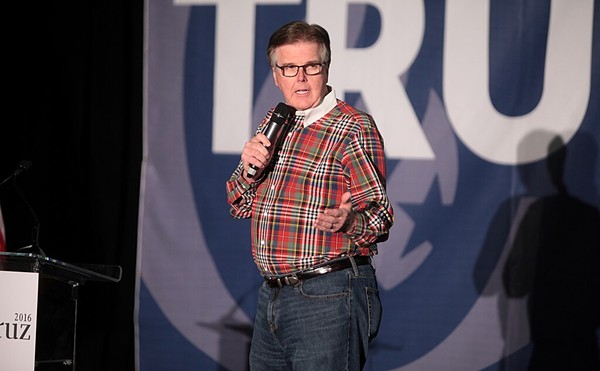The quick exodus of the Express-News’ top two editors last week left a newsroom grasping for explanation. The day after Executive Editor Bob Rivard stepped down, sending a rosy email to staff that left more questions than answers, the paper’s No. 2, Brett Thacker, quickly followed, sending his own frustratingly vague goodbye via email.
Neither showed for newsroom-wide meetings last week when Publisher Tom Stephenson announced their respective resignations, fueling even more confusion and speculation over the supposed voluntary departures, according to an Express-News staffer who requested anonymity to speak out on the topic. Even more troubling to some, Stephenson was flanked by Hearst executive Mark Aldam, head of the company’s newspaper division, who made no bones about the company looking toward possible changes on the horizon, saying Hearst is still hoping to streamline operations to save more cash.
Then news dropped over the weekend that two of the paper’s most prominent local voices were leaving, as well. Joaquin Castro’s congressional campaign confirmed Monday that columnist Cary Clack had been picked to join the team as communications director and a senior advisor, making him the second E-N columnist plucked from the newsroom by a Castro (former columnist Jaime Castillo is now Mayor Julián Castro’s communication’s guy). Columnist Scott Stroud confirmed Monday that he’s leaving to join the Nashville Tennessean, saying his move was unrelated to the departures of the paper’s top two editors.
Some were alarmed by the way Thacker’s departure was handled. Stephenson had given staffers the “good news” that Metro Editor Jaime Stockwell would jump to managing editor, a post Thacker had held for 8 years, before Thacker’s resignation was announced the following day. The abrupt resignations, and Aldam’s presence in the newsroom, have already led to fears of further consolidation with the daily’s sister publication, the Hearst-owned Houston Chronicle, and a nagging feeling that major changes down the pipe may have pushed Rivard and Thacker into a corner, triggering their exits. (Thacker, when reached last week, declined to comment, saying only that his letter “says it all.” Rivard did not respond to an interview request.) Kyria O’Connor, a senior Chronicle editor stepping in as Rivard’s interim replacement, addressed the newsroom last week, according to the E-N staffer, saying the aim wasn’t to convert the into “the Houston Chronicle Southwest.”
Neither Stephenson nor Jack Sweeney, Chronicle publisher and president of the Hearst Texas Media Group, returned calls for comment last week.
E-N investigative reporter John Tedesco sent out some of the first mentions of Rivard’s exit via social media last week, and eventually wrote the E-N piece marking Thacker’s exit. When readers began to bash the article on the paper’s webpage, calling it willfully opaque, Tedesco responded, “We’ve asked the same questions you have, but the simply [sic] truth is only a handful of people know what really happened, and they’re not giving detailed answers. If I knew more, I’d write it.” He later wrote, “At this point no one is answering the most important question about these resignations: Why?”
Rivard’s tenure at the E-N will likely be remembered with mixed emotions. He’s been a staple of San Antonio journalism for nearly two decades, and some will remember him as a staunch protectionist in recent years, working to keep newsroom production jobs in San Antonio and fighting to stem further consolidation with the Chronicle, a process that started inching forward two years ago.
But he’ll be remembered by others for pieces he wouldn’t run. Todd Bensman, a former E-N reporter who left in 2009, remembered Rivard bristling when controversial stories hit too close to City Hall, particularly when they angered City Manager Sheryl Sculley. After uncovering a city playground-inspection scandal in the spring of 2008, Bensman recalled a lot of irritation in the newsroom, particularly with Rivard. The story set the stage for a “super abundance of caution over anything that was critical of Sculley or the mayor,” Bensman said over the phone last week. In that climate, another of Bensman’s pieces, regarding another juicy City Hall scandal, was quashed, he said.
Bensman said Rivard’s actions created a chill over City Hall coverage – he recalled a new mandate that Rivard pre-approve all public-records requests to City Hall, something Rivard has, in the past, denied. For whatever reason, Bensman said, City Hall, particularly Sculley, was one of Rivard’s blind-spots, adding, “[Sculley]’s probably trembling in her high-heeled shoes right now.”
Still, Bensman noted that he and others will also remember Rivard as an editor who supported high-profile enterprise others might have tossed aside as too costly or time consuming. Under Rivard, Bensman was sent to Central America and the Middle East for hard-hitting features. “I think everyone would say that the whole Sculley thing, though, that was an aberration. … If you look at him from 300,000 feet up, he really facilitated a lot of good journalism.” •



















